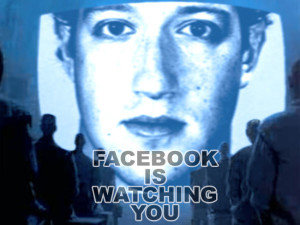
The Cambridge Analytica scandal involving Facebook is the first great crisis of our new world. It highlights the end of politics as we have known it. Facebook, with nearly 2 billion users worldwide, achieved uncanny unanimity some years ago. And every government, from the right to the left, from the West to the East, watched with worry as the social networking site’s influence rose, increasing its capacity to manipulate the masses and shape opinions.
Millions of people fill their walls with personal data, revealing their tastes and beliefs through “likes.” They’ve converted Mark Zuckerberg’s invention into the most advanced tool for collective manipulation in human history. Power has always been built on people’s fears, beliefs, feelings of guilt, desires for progress and their search for happiness. Further, the Vatican, as well as some governments, have organized power around faith and around knowledge of people’s intimate lives. At certain moments in history, these institutions have exercised a monopoly as divine mouthpieces, especially before the invention of the printing press.
Facebook created a universe in which, for the first time, each individual is free and able to say whatever he or she wants, about whomever they want. Moreover, it built into this personal connection with its users the possibility of manipulating their beliefs. Cambridge Analytica broke into the data and personalities of “internauts” (internet astronauts) in order to invent new forms of manipulation and political sway. The only government in the world that has resisted the Facebook phenomenon, blocking it as much as is possible in the modern world because what dictatorships do is block influence, is China. The Chinese were the first to fence out the enormous social networking site, and they created an alternative. Subsequently, Europeans found reason to look into the activities of Facebook and other technological giants because of the company’s shifty behavior, including its questionable use of tax advantages.
In the end, Cambridge Analytica and taxes, are just the tip of the iceberg. The real problem is that Facebook personifies George Orwell’s dystopian “1984” as well as the unachievable dream of Goebbels and Stalin. How long will the social network last without giving into the temptation of exploiting its enormous database and directing its members about what to think politically and socially? Zuckerberg has a historic responsibility – although he’s not the only person shouldering it – that will affect how our online world (in which we so often exchange knowledge for wisdom) is constructed.
In the era of the internet, of Google and Apple, we are, in one sense, more knowledgeable than ever. But as temporal and maturation processes are condensed, our societies are also becoming less wise – unwise and capable of collecting endless data. With the exception of Steve Jobs, our new world was constructed by people who had no political or social compass. Be that as it may, this modern world concentrates that which is human beings’ most sacred quality – our need for communication and affection – in just a very few hands.
The hands that hold our technological capacity connection do not just develop algorithms that have destroyed old forms of business and old means of communication. In theory, they also defend our most intimate dreams and our need for interaction. Facebook has been the prime element that has broken through the Jeffersonian principle, just barely alive, that the free press without government is more important than government without a free press.
Facebook’s rise to a position of dictatorship over information was an easy feat. For years, traditional media have been investing billions in the digital conversion that certain experts said was the only way forward. The movement was unstoppable, and content was offered online. Experts reported that if the publication reached a wide enough audience, advertising would pay the bills, just like in the old days.
In theory, this worked. But in practice, Facebook just had to change one algorithm – and be provided with a proposal that couldn’t be passed up – and media outlets ran the risks, putting their brands at Facebook’s disposal, and financing Facebook’s expansion. Later, the media outlets paid the social network for the internet traffic, broadcasting and the popularity they gained, allowing Facebook to subtly “run” a business that didn’t belong to it.
It’s true that other digital platforms apply the same formula. What is most important to remember is that the concentration of power, not just in the administration of millions of people’s data, but also in the capacity to manipulate and select what we are exposed to, has created a problem that is impossible to solve. Who governs now? Facebook? Or formal government? Public authorities are rendered defenseless in the face of these new realities except in questions of defense and cyber war. This is what the Facebook crisis teaches us. This won’t be the only crisis, but it is sufficient to redefine modern power.
Image by Scott Baradell, Editor Trust Signals. See: https://www.trustsignals.com/blog/the-man-behind-the-curtain-personalization-privacy-and-trust

Leave a Reply
You must be logged in to post a comment.